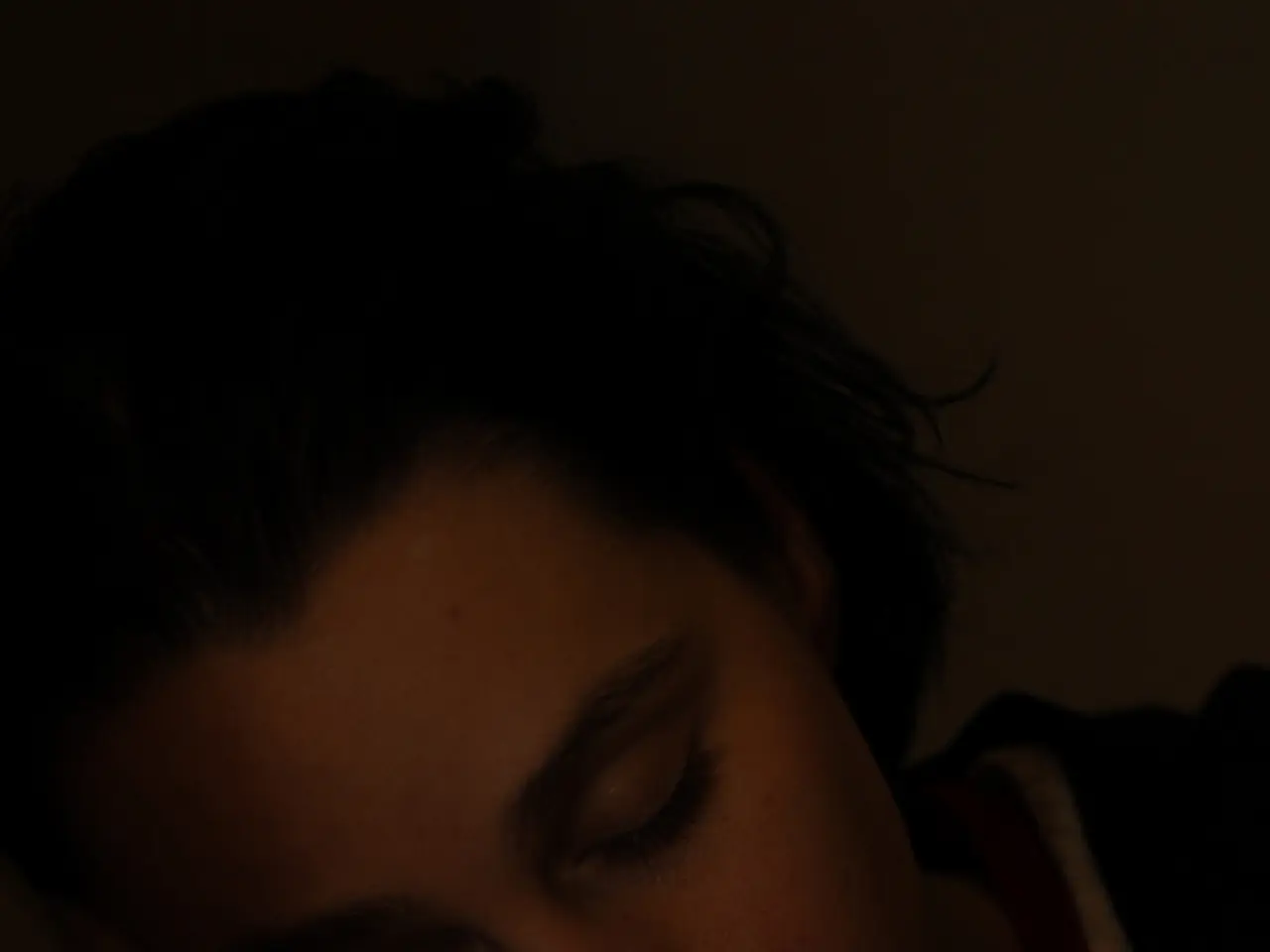Weekend celebrations leading to disrupted sleep, coined as "Social Apnea".
A new sleep disorder, dubbed "Social Apnea," has been identified by an international research team from Flinders University in Australia. This condition, characterised by a spike in Obstructive Sleep Apnea (OSA) symptoms due to irregular sleep patterns and lifestyle choices typical of weekends, is becoming a significant public health issue[1].
The Impact of Weekend Habits
Weekend lifestyle choices can have a profound impact on the occurrence and severity of OSA. Late nights, alcohol consumption, and smoking are common on weekends and can exacerbate sleep apnea. Late nights disrupt sleep routines, alcohol can relax the muscles in the throat, increasing the likelihood of airway obstruction, and smoking can cause inflammation and irritation in the airways, further complicating breathing[2][3].
Sleeping in on weekends can lead to what is known as "social jetlag," where the body's internal clock is disturbed, affecting sleep quality and potentially worsening OSA symptoms. Studies have shown that sleeping an extra 45 minutes or more on weekends can increase the risk of worse sleep apnea by 47%[2][4].
Maintaining consistent sleep schedules, even on weekends, is crucial for mitigating the effects of social apnea. This includes avoiding excessive napping, staying away from caffeine and alcohol before bedtime, and maintaining a regular wake-up time[2][1].
Health Risks
The increased severity of OSA on weekends can elevate the risk of serious health conditions such as heart disease, depression, dementia, and accidents caused by extreme fatigue[3][4].
Demographic Variations
Younger adults face a higher risk (24% increase) compared to older individuals (7% increase). Men are more likely than women to experience worse OSA symptoms on weekends, with a 21% increase for men versus a 9% increase for women[3][4].
The Importance of Consistent Sleep
Avoiding "social apnea" requires a commitment to consistent sleep patterns and the regular use of prescribed OSA therapies. Seven to nine hours of restful sleep per night is ideal to avoid sleep apnea[1].
The lead author of the study, Lucia Pinilla from the FHMRI Sleep Health research center, stated that the true extent of sleep apnea has been underestimated. The results of the study were published in the journal "American Journal of Respiratory and Critical Care Medicine"[1].
However, the study has limitations, as participants were likely health-conscious and men were overrepresented, with missing data on lifestyle factors like alcohol, exercise, caffeine consumption, or smoking[1].
In conclusion, weekend lifestyle habits can significantly worsen the severity of sleep apnea, and adopting consistent sleep practices can help mitigate these effects.
[1] Pinilla, L., et al. (2021). Social Jetlag and Sleep Apnea: A Global Study. American Journal of Respiratory and Critical Care Medicine. [2] American Sleep Apnea Association. (2021). What is Sleep Apnea? Retrieved from https://www.sleepapnea.org/ [3] Mayo Clinic. (2021). Obstructive sleep apnea. Retrieved from https://www.mayoclinic.org/ [4] University of California, San Diego. (2021). Sleeping in on weekends may increase risk of sleep apnea. Retrieved from https://ucsdnews.ucsd.edu/
- The new sleep disorder, Social Apnea, is associated with chronic respiratory conditions like Obstructive Sleep Apnea (OSA) due to disrupted sleep patterns on weekends, making it a growing public health concern.
- Alterations in weekend lifestyle, including late nights, alcohol consumption, and smoking, can intensify OSA symptoms, potentially triggering other chronic diseases such as heart disease, depression, dementia, and accidents caused by fatigue.
- Research has pointed out that irregular sleep schedules on weekends, followed by oversleeping, can lead to a condition called "social jetlag," adversely affecting sleep quality and exacerbating OSA symptoms, thereby raising the risk by 47%.
- To minimize the impact of social apnea and maintain overall health-and-wellness, it's essential to prioritize consistent sleep routines, opt for healthy choices, and use prescribed OSA therapies, ensuring seven to nine hours of quality sleep per night.
- The effects of lifestyle choices on sleep apnea severity are statistically significant across demographics, with younger adults and men experiencing more pronounced OSA symptoms on weekends compared to their older and female counterparts.




